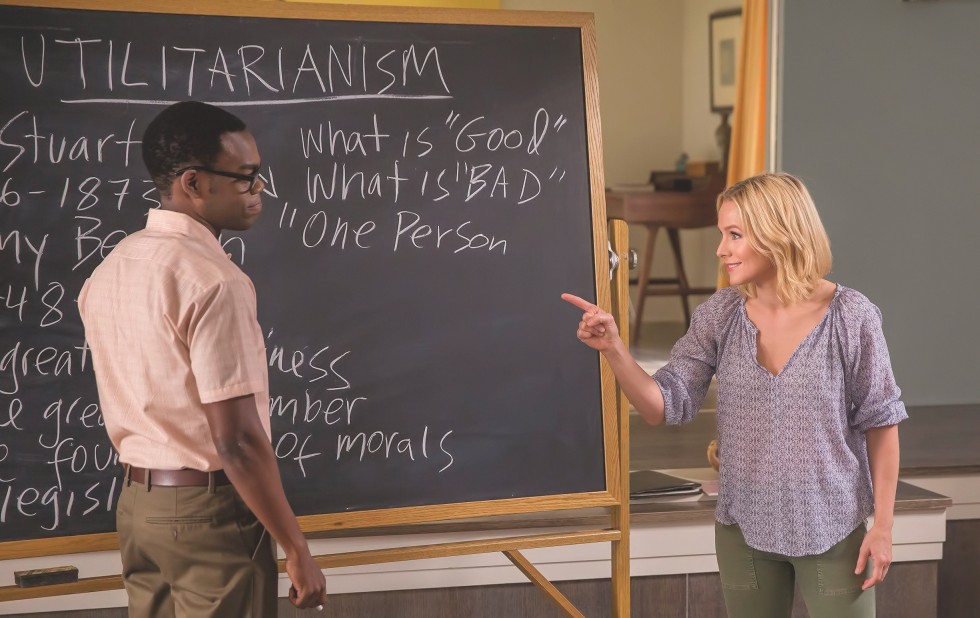Grit on the Gridiron
Character takes top priority as the Lords work to turn around a football program that historically produces more…
Read The StoryRev. Rachel Kessler ’04 explores what “The Good Place,” a popular NBC sitcom about morality and the afterlife, can teach us about becoming better humans.

I started watching “The Good Place” when it first aired in 2016, and I had some initial reservations. The moral premise of the show — that human fate in the afterlife was determined by an objective calculation of morality points — seemed, from my perspective as a Christian priest, to lack grace.
That changed with Eleanor Shellstrop’s (Kristen Bell) shocking revelation at the end of the first season: “Holy motherforking shirtballs, we’re in the Bad Place!” As it turned out, not only were our main humans (Eleanor, Chidi, Tahani and Jason) actually in the Bad Place — all of humanity for the last 500 years had failed to attain entry to the titular Good Place.
That might seem like a depressing premise for a network sitcom, but I believe that assertion of humanity’s failure is the grace I longed for originally. Individualistic moral perfection is as undesirable as it is unobtainable. Through whatever permutations and reboots “The Good Place” has undergone, the recurring theme has been that humans improve only through their relationships with one another.
If there is a moral lesson to be learned from “The Good Place,” the show makes a compelling argument that pursuing individual perfection is a losing game. Instead, “good” comes from living fully into our relationships while loving and learning from one another.
If the “experiment” that began the show’s first season was a twist on Sartre’s classic line, “Hell is other people,” the show’s ultimate premise is the refutation. Or, to quote the great Jason Mendoza: “The Good Place was the friends we made along the way.”
The Rev. Rachel Kessler ’04 is the priest-in-charge of Harcourt Parish and Kenyon’s chaplain. She wishes she could sign up for Chidi’s philosophy lessons (pictured above).
Character takes top priority as the Lords work to turn around a football program that historically produces more…
Read The StoryThe “River of the Little Owls," and the communities found along it, have shaped much of Kenyon's sense of place…
Read The StoryHow a boy from Boston waxed philosophical at Kenyon, hitched a ride to the White House with a hotshot senator and…
Read The Story